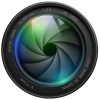Interesting .
Do you have any links for your "mito QC" hypothesis? The only link I could source was a study that referenced Nicotinamide and its downstream effects on Sirt1 - i understand NMN and NAD+ act on all the Sirt's.
https://www.ncbi.nlm...pubmed/22493485
Also your link to smoking and mutation rate of mtDNA while interesting doesn't surprise and also doesnt lead to your assumption that this is what may be causing the "mito QC' to swing into action and is a good thing.
This has been the classic go-to for quacks for ages -
Q- "here take this it will make you healthier" .
P -."But it makes me feel bad and I have less energy and have lost my get up and go"...
Q."Oh thats because its doing <add some pseudo scientific mumbo jumbo here> all under the covers and "is a good thing"
No its not specially when you are paying an arm and a leg for it - others dont have this "Herxheimer Reaction" and it could be covering up something more serious.
My take is we are all wired very differently and if something you are paying big bucks for isnt giving you a positive reaction then listen to your gut and stop it or microdose it - dont just assume that "some healing" is happening under the covers because someone says so. Now if you can actually measure said mtMRA mutation and NAD+'s subsequent "getting rid of these defections" yes by all means continue but in the absence of that evidence its silly to keep taking something that has negative effects on your life.
There is no one supplement you can take every day to fix a mitochondrial problem, but the body can be helped into doing the job itself with the right protocol. Cells have a natural QC program for eliminating defective mitochondria (defective mtDNA, actually), and for this to work properly, mitochondria have to be fissioned into the smallest possible size that contain only on mtDNA loop. This is necessary to keep loops with different bad genes from covering for each other and to fit them into lysosomes for recycling. With a single bad loop, mitochondrial membrane potential (ΔΨm) drops off so that the well known Pink1/Parkin QC mechanism can come into play.
Recent work has shown that Parkin promotes the degradation of dysfunctional mitochondria in vertebrate cell culture. Here we postulate a model whereby the PINK1/Parkin pathway regulates mitochondrial dynamics in an effort to promote the turnover of damaged mitochondria.
https://www.ncbi.nlm...pubmed/19967438
PINK1 is intimately involved with mitochondrial quality control by identifying damaged mitochondria and targeting specific mitochondria for degradation. Healthy mitochondria maintain a membrane potential that can be used to import PINK1 into the inner membrane where it is cleaved by PARL and cleared from the outer membrane. Severely damaged mitochondria lack sufficient membrane potential to import PINK1, which then accumulates on the outer membrane. PINK1 then recruits parkin to target the damaged mitochondria for degradation through autophagy.[14] Due to the presence of PINK1 throughout the cytoplasm, it has been suggested that PINK1 functions as a "scout" to probe for damaged mitochondria.
https://en.wikipedia.org/wiki/PINK1
One can easily achieve the necessary fission by raising the NAD+/NADH ratio with cheap supplements.
Removal of dysfunctional mitochondria requires the activation of autophagy coupled with ongoing mitochondrial fission (7). Our current and previous studies show that both of these processes can be induced by NAM treatment. The earlier part of this study showed that the effect of NAM was exerted through an increase of [NAD+]/[NADH] ratio.
https://www.ncbi.nlm...les/PMC3365962/
While NAM (nicotinamide) will work by itself if taken in an intermittent fashion, NAM+ribose works even better, as the body has very limited stores of ribose to make NAD out of. (NAM + ribose works faster and is far cheaper than NR or other supplements being sold for NAD+). Thus a protocol consists of stimulating fission to get rid of defective loops, then stimulating fusion and biogenesis to replace them. Each cycle will get rid of a few percent, but with repeated cycles, the health of cells' mitochondrial populations can be reestablished. I first looked at this in 2016, and eliminated the substantial damage that statins caused me with several months of treatments. See these threads--
https://www.longecit...e-mitochondria/
https://www.longecit...drial-dynamics/
https://www.longecit...-46#entry870740
Mitochondria work less efficiently in a fission state, and when there is a lot of damage, ATP production can be severely depressed. Thus best to start off slowly, with only one day of fission, followed by biogenesis the next day, preferably with fusion.
Edited by Turnbuckle, 24 February 2020 - 01:52 PM.































 This topic is locked
This topic is locked

















